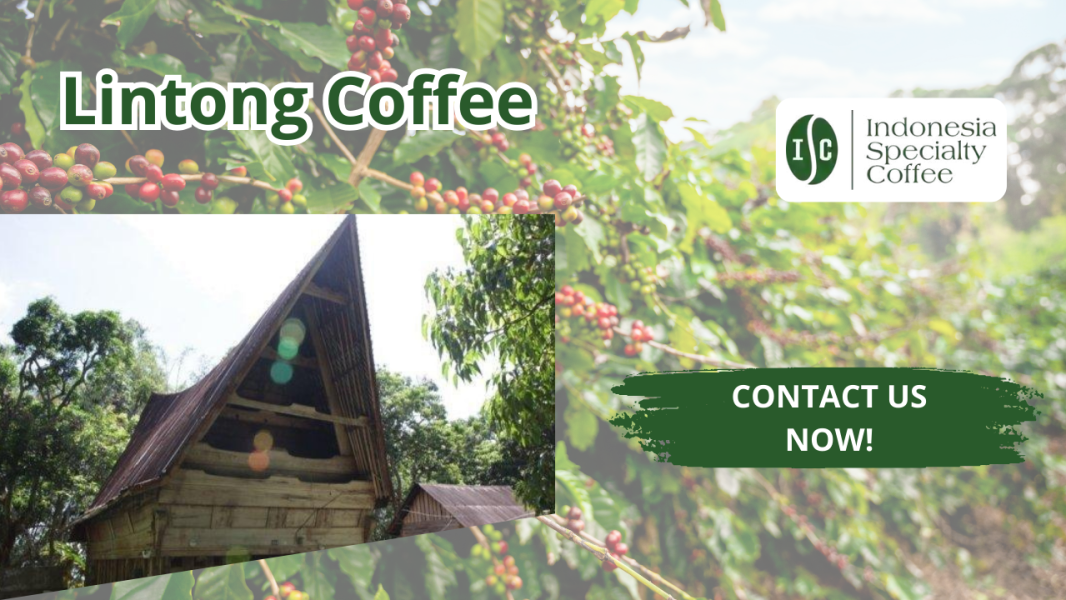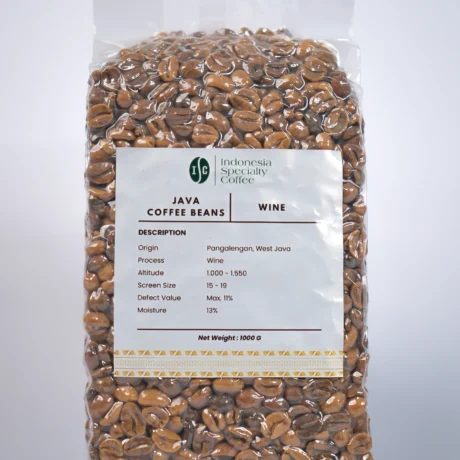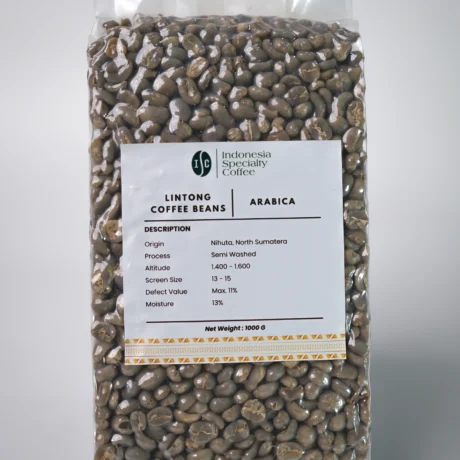The Origin of the Word Lintong
The term “Lintong” is derived from the name of a region located in North Sumatra, Indonesia. This area is renowned for its unique coffee-growing conditions, which contribute to the distinct flavor profiles of the coffee produced there. The word itself reflects the cultural and geographical significance of the region, as it is closely tied to the local communities and their coffee cultivation practices.
Lintong is not just a geographical marker; it embodies the rich heritage of coffee farming in Indonesia. The region’s name has become synonymous with high-quality coffee, particularly among specialty coffee enthusiasts. Understanding the origin of the word “Lintong” provides insight into the deep-rooted traditions and practices that shape the coffee industry in this part of the world.
The Lintong region is characterized by its volcanic soil, high altitude, and favorable climate, all of which are essential factors in producing exceptional coffee beans. The local farmers have honed their skills over generations, ensuring that the coffee they cultivate is not only of high quality but also reflective of the unique terroir of the area.
Where Does Lintong Coffee Come From?
Lintong coffee originates from the Lintong Nihuta district, situated in the northern part of Sumatra, Indonesia. This region is part of the larger Lake Toba area, which is known for its stunning landscapes and rich volcanic soil. The unique geographical features of Lintong contribute significantly to the quality and flavor of the coffee produced here.
Geographical Features
- Altitude: Lintong is located at an elevation of approximately 1,200 to 1,500 meters above sea level. This high altitude is crucial for coffee cultivation, as it allows for slower maturation of the coffee cherries, resulting in a more complex flavor profile.
- Soil Composition: The volcanic soil in Lintong is rich in nutrients, providing an ideal environment for coffee plants to thrive. This nutrient-dense soil contributes to the unique taste characteristics of Lintong coffee, often described as earthy and full-bodied.
- Climate: The region experiences a tropical climate with distinct wet and dry seasons. The consistent rainfall and moderate temperatures create optimal growing conditions for coffee, allowing for the development of rich flavors.
Local Farming Practices
The coffee farmers in Lintong employ traditional farming methods that have been passed down through generations. Many of these farmers practice shade-grown coffee cultivation, which not only enhances the flavor of the beans but also promotes biodiversity and sustainability in the ecosystem.
Additionally, the community’s commitment to sustainable practices ensures that the coffee produced is not only of high quality but also ethically sourced. This focus on sustainability aligns with the growing demand for responsibly sourced coffee in the global market.
Types of Lintong Coffee
Lintong coffee is primarily categorized into two main varieties: Robusta and Arabica. Each type possesses distinct characteristics that appeal to different palates and preferences among coffee drinkers. Understanding these varieties is essential for appreciating the diversity of flavors and aromas that Lintong coffee has to offer.
Robusta
Robusta coffee from the Lintong region is known for its bold and robust flavor profile. Here are some key characteristics:
- Flavor Profile: Lintong Robusta typically exhibits a strong, earthy taste with a hint of bitterness. It often has a fuller body compared to Arabica, making it a popular choice for espresso blends and dark roasts.
- Caffeine Content: Robusta beans generally contain higher caffeine levels than Arabica beans. This higher caffeine content contributes to the coffee’s stronger flavor and can provide a more intense energy boost.
- Growing Conditions: Robusta coffee thrives in lower altitudes and is more resistant to pests and diseases, making it easier to cultivate in certain conditions. In Lintong, the combination of volcanic soil and favorable climate allows for the production of high-quality Robusta beans.
Arabica
Lintong Arabica coffee is celebrated for its nuanced flavors and aromatic qualities. Here are the defining features:
- Flavor Profile: Arabica beans from Lintong are known for their complex flavor profiles, often featuring bright acidity and floral notes. They may also present hints of chocolate, fruit, and spice, making them highly sought after by specialty coffee roasters.
- Caffeine Content: Arabica beans have lower caffeine levels compared to Robusta, which contributes to their smoother and more delicate taste. This makes Lintong Arabica a preferred choice for those who enjoy a milder cup of coffee.
- Growing Conditions: Arabica coffee flourishes at higher altitudes, which is ideal in the Lintong region. The cooler temperatures and slower maturation process enhance the development of the beans’ flavors, resulting in a superior product.
The Characteristics of Lintong Coffee
Lintong coffee is distinguished by its unique characteristics, which are influenced by the region’s specific growing conditions, processing methods, and the inherent qualities of the coffee varieties cultivated there. Understanding these characteristics is essential for appreciating the complexity and richness of Lintong coffee.
Flavor Profile
- Earthy and Full-Bodied: Lintong coffee is often described as having a rich, earthy flavor with a full body. This characteristic is particularly prominent in both Robusta and Arabica varieties, making it a favorite among those who enjoy a robust cup of coffee.
- Complexity: The flavor complexity of Lintong coffee is notable, especially in the Arabica variety. Tasting notes may include hints of chocolate, spices, and fruity undertones, which can vary depending on the specific processing methods used and the microclimate of the coffee farms.
- Balanced Acidity: Lintong coffee typically exhibits a balanced acidity, which enhances its flavor without overwhelming the palate. This quality is especially appreciated in specialty coffee circles, where acidity plays a crucial role in the overall tasting experience.
Aroma
- Rich and Inviting: The aroma of Lintong coffee is often described as rich and inviting, with earthy and floral notes that entice coffee drinkers. The aromatic profile can vary between the Robusta and Arabica varieties, with Arabica often showcasing more complex and nuanced scents.
- Freshness: The freshness of Lintong coffee is a significant factor in its overall quality. Coffee beans that are freshly harvested and properly processed retain their aromatic qualities, providing a delightful sensory experience when brewed.
Processing Methods
- Traditional Processing: Lintong coffee is often processed using traditional methods, such as wet or semi-washed processing. These methods help to preserve the unique flavors of the beans while enhancing their natural sweetness and acidity.
- Attention to Detail: Local farmers pay meticulous attention to the processing stages, from harvesting to drying. This careful approach ensures that the coffee maintains its high quality and distinctive characteristics.
Sustainability
- Ethical Sourcing: Many Lintong coffee producers are committed to sustainable and ethical sourcing practices. This focus not only benefits the environment but also supports local communities involved in coffee production.
- Biodiversity: The cultivation of coffee in Lintong often involves shade-grown practices, which promote biodiversity and help maintain the ecological balance of the region. This sustainable approach contributes to the overall quality of the coffee produced.
The Conclusion
In summary, Lintong coffee stands out as a remarkable representation of Indonesia’s rich coffee heritage. Originating from the Lintong Nihuta district in North Sumatra, this coffee is deeply rooted in the region’s unique geographical features, traditional farming practices, and commitment to sustainability.
Key Takeaways
- Diverse Varieties: Lintong coffee encompasses both Robusta and Arabica varieties, each offering distinct flavor profiles and characteristics. Robusta is known for its bold, earthy flavors and higher caffeine content, while Arabica is celebrated for its complex, nuanced taste and aromatic qualities.
- Unique Characteristics: The coffee produced in Lintong is characterized by its rich, full-bodied flavor, balanced acidity, and inviting aroma. These qualities are a direct result of the region’s volcanic soil, high altitude, and favorable climate, combined with meticulous processing methods employed by local farmers.
- Sustainability and Ethical Practices: The commitment to sustainable and ethical sourcing practices among Lintong coffee producers not only enhances the quality of the coffee but also positively impacts the local communities and environment. This focus on sustainability aligns with the growing demand for responsibly sourced coffee in the global market.
Interested in Lintong Coffee? Call us on WhatsApp anytime at +62 811 6380 606 or email info@specialtycoffee.id






